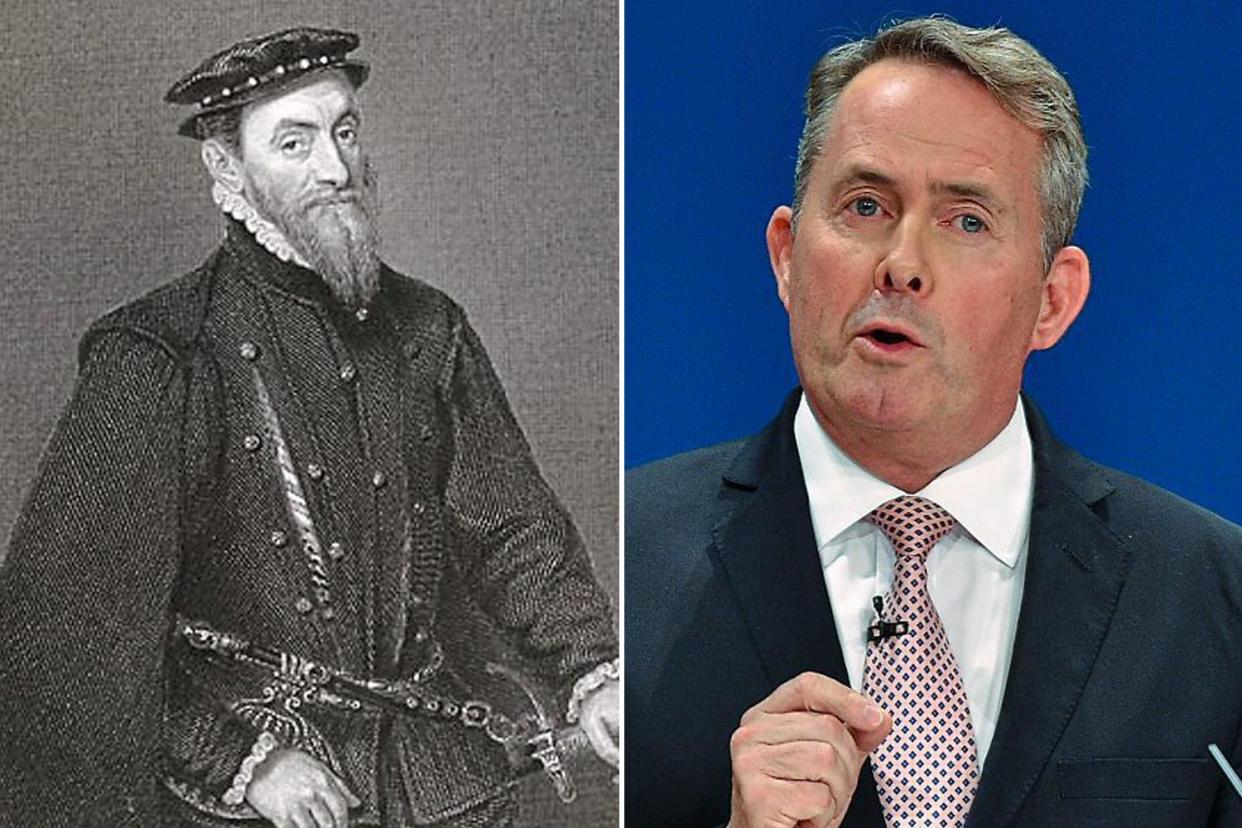Stephen Alford: Lessons for our time from the first Brexit

Historians should never dabble in prophecy. Yet it is hard not to see patterns in history that help us to make sense of today. The past allows us to assess and reflect.
With Brexit and Trump, we might usefully look back to London nearly half a millennium ago. One of the remarkable stories of London’s long history is how a modest city began to trade globally, sending ships to the East Indies and colonists to North America. Where early Tudor merchants sold their cloths and bought luxury goods and spices in markets just across the English Channel, two generations later Londoners were fitting out ships for expeditions to Russia, Persia, Indonesia, India and Japan.
Today we are wary of how interconnected we are, yet just over 400 years ago London was discovering the world in ways that have since shaped human history.
London was then a city in flux. Its population practically quadrupled in just over a century. The city felt the massive pressures of migrants coming in from other parts of England to make a living. Thousands of foreign Protestants, seeking refuge from war-torn mainland Europe, arrived too. The richest Londoners worried that their status and privileges would be challenged by immigrant outsiders, while young apprentices and the poor seethed at incomers who seemed to want their jobs.
Change is never easy. Elizabethans hated it, yet somehow they also embraced it. The Europe they knew was convulsed by war and rebellion. The armies of the superpower of the day, Catholic Spain, rumbled through the Netherlands. France for decades was paralysed by religious civil strife. Ordinary Londoners found themselves conscripted into distant wars.
London’s merchants found themselves blockaded out of their traditional markets. Where traders wanted peace and security, Europe’s monarchs seemed to offer nothing but war and sanctions. So the merchants found new markets. They pooled their capital and shared out the risks and returns of expeditions across the world, recruiting investors who, for the first time, were able to buy shares in these ventures.
This was the moment of groundbreaking new corporations like the Russia Company, the Levant Company and (most famously) the East India Company. It was a moment of engagement with the world, not a retreat.
They also had to find new ways to talk about money. The old laws against usury (lending money at interest) were beginning to loosen. London’s preachers still berated moneylenders and profiteers. Critics of unscrupulous financiers heard them using weasel words to cover up the shame of usury, of which the most pernicious was “interest”. But merchants were pragmatists who treated money just like any other commodity, to be lent out for a fair price. In the end they won the debate.
Like us, Elizabethans experienced how powerfully politics and money could work together. But Tudor merchants also saw through the posturings of monarchs. Wars, blockades, dynastic squabbles and politics all got in the way of trade. True, Tudor merchants were protectionists. Yet in trying to get the edge over their rivals they saw the huge benefits of treaties and reciprocal deals across Europe and beyond. They knew that common prosperity — and their wealth — was grounded upon patient negotiations, not the vagaries of politicians with an eye on the short game.
Cities rise and fall. Early in the 16th century Antwerp overtook Bruges as the financial capital of Western Europe, and then in turn Antwerp was overtaken by London. Amsterdam in the 17th century was a powerhouse of global capitalism. In Elizabethan London it was at Sir Thomas Gresham’s grand Royal Exchange that merchants of many nations met to do their deals.
We are about to leave behind institutions that were built to protect Europeans from self-inflicted horrors. For two generations these have allowed us to work, travel and trade in a way that would have seemed miraculous to Elizabethans. No one, however clever they think they are, can predict how the future will look. The past gives no easy lessons. There are just a few buildings that survive from Tudor London.
Perhaps those in charge now should take themselves off quietly to one of their ancient churches. There are the tombs of some of the men and women who, able to see a little beyond their own city, changed the world as much they changed London.
Stephen Alford is Professor of early modern British history at the University of Leeds. His London’s Triumph: Merchant Adventurers and the Tudor City is published by Allen Lane (at £20)

 Yahoo News
Yahoo News 
